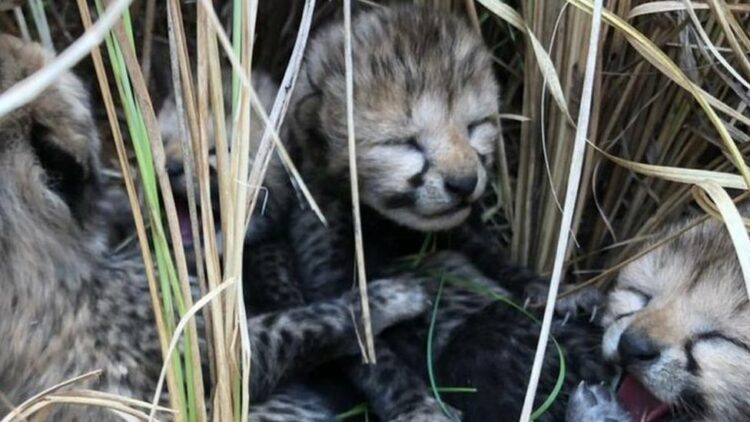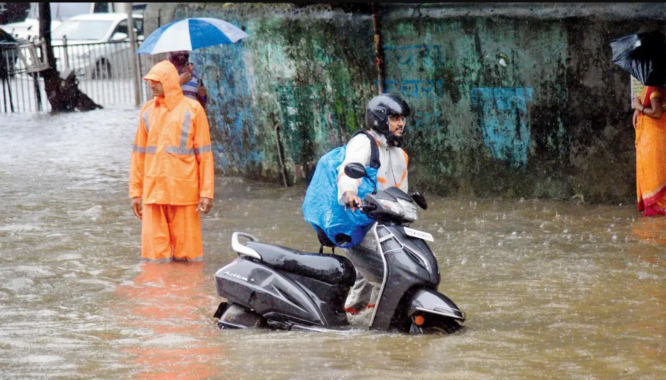Four cheetah kittens have been born to a mother cheetah that is three years old and were one of eight radio-collared cats who were moved from Namibia to Kuno National Park in India.
A video captured the newborn cubs, who were born on Wednesday, in a pre-release enclosure. They could be seen yawning while snuggling up close to one another.
Narendra Modi tweeted a video.
According to JS Chouhan, the Senior Chief Conservator of Forests and the Commander of the Forest Force in Bhopal, the genders of the cubs have not yet been determined.
On September 17, 2022, Indian Prime Minister Narendra Modi was present to witness the arrival of the eight large cats, together known as the fastest land mammal on the face of the planet.
That was the pinnacle of a thirteen-year campaign to bring back a species that had been extinct in India for the previous seven decades.
Cheetahs are most often found in the eastern and southern regions of Africa, which are located south of the Sahara Desert. Nevertheless, there are also populations of cheetahs in Iran and North Africa.
This high-profile operation marks the very first time that wild cheetahs have been transported from one continent to another in order to be let free.
That has caused experts to ask whether or not the government should do more to conserve the wildlife native to the nation, which is now in a state of decline.
Later in the month of February in 2023, twelve additional cheetahs arrived from South Africa.
Biologists are concerned that there won’t be enough area for cheetahs to wander without the risk of being murdered by people or other animals since India’s population of 1.4 billion people is competing for territory.
India became a signatory to a United Nations commitment to preserve 30 percent of its land and ocean area by the year 2030 last year; however, less than 6 percent of India’s territory is currently designated as protected.




